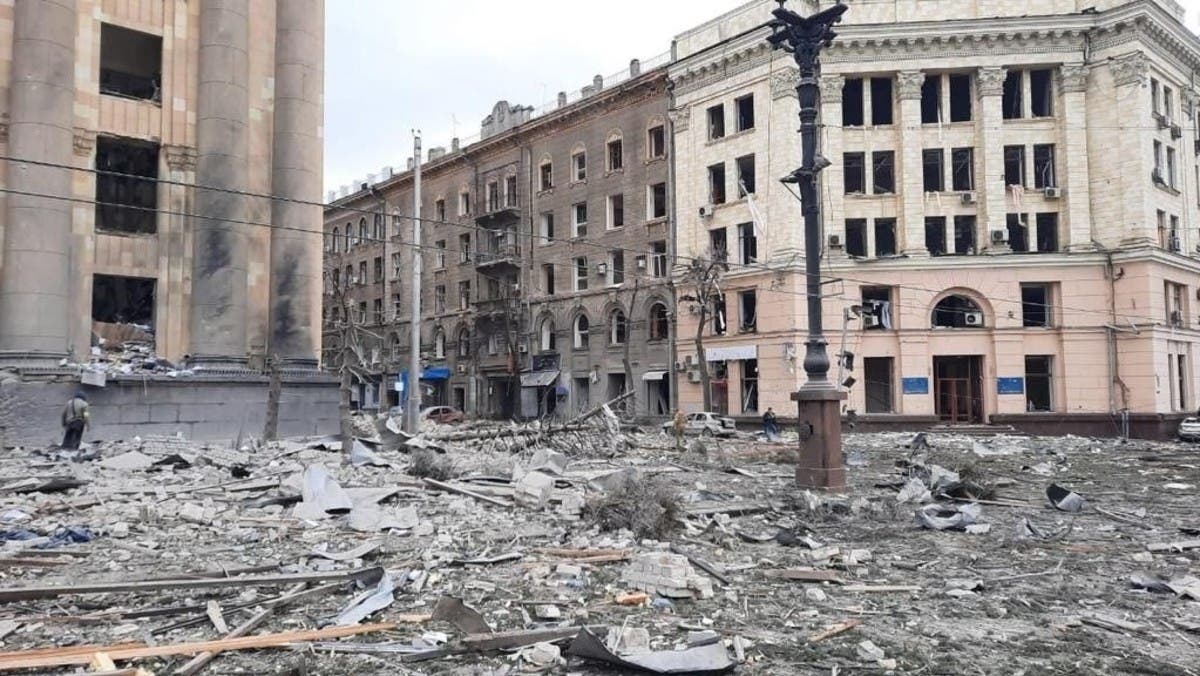Rights groups and observers say Russia is using cluster bombs in its invasion of Ukraine, a charge Moscow denies. If confirmed, deployment of the weapon, especially in crowded civilian areas, would usher in new humanitarian concerns in the conflict, Europe’s largest ground war in generations.
Proponents of banning cluster bombs say they kill indiscriminately and endanger civilians long after their use. From Syria and Yemen to the Balkans, Afghanistan and Southeast Asia, unexploded ordnance from cluster bombs continues to kill and maim people years or even decades after the munitions were fired.
For the latest headlines, follow our Google News channel online or via the app.
Though many countries have joined a global convention limiting their use, cluster munitions are still used in conflict zones around the world.
Here is a closer look at the weapon and why its use sparks particular concern:
What is a cluster bomb?
Cluster bombs are weapons that open in the air, releasing submunitions, or “bomblets,” that are dispersed over a large area, intended to wreak destruction on multiple targets at once. Cluster bombs can be delivered by planes, artillery and missiles, according to the International Committee of the Red Cross.
Beyond the initial harm caused by the munitions upon impact, bomblets have a high rate of failure to explode, up to 40 percent in some recent conflicts, according to the ICRC.
That leaves swaths of land dotted with bomblets that could explode. Return to normal life in those areas becomes hazardous, particularly in heavily populated areas. Some formerly war-torn countries spend years trying to clear unexploded cluster bomblets.
Is using them a war crime?
Use of cluster bombs itself does not violate international law, but using them against civilians can be a violation. As in any strike, determining a war crime requires looking at whether the target was legitimate and if precautions were taken to avoid civilian casualties.
“The part of international law where this starts playing (a role), though is indiscriminate attacks targeting civilians,” Human Rights Watch’s associate arms director Mark Hiznay told The Associated Press. “So that’s not necessarily related to the weapons, but the way the weapons are used.”
A convention banning the use of cluster bombs has been joined by more than 120 countries who agreed not to use, produce, transfer or stockpile the weapons and to clear them after they’ve been used. Russia and Ukraine have not joined that convention. Neither has the United States.
Where have they been used?
The bombs have been deployed in many recent conflicts.
Syrian government troops have often used cluster munitions — supplied by Russia – against opposition strongholds during that country’s civil war, frequently hitting civilian targets and infrastructure.
Israel has used cluster bombs in civilian areas in south Lebanon, including during the 1982 invasion that saw Israeli troops reach the capital Beirut.
During the monthlong 2006 war with Hezbollah, Human Rights Watch and the United Nations accused Israel of firing as many as 4 million cluster munitions into Lebanon. That has left unexploded ordnance that threatens Lebanese civilians to this day.
In 2017, Yemen was the second deadliest country for cluster munitions after Syria, according to the UN Children have been killed or maimed long after the munitions originally fell, making it difficult to know the true toll.
The last large-scale American use of cluster bombs was during the 2003 Iraq invasion, according to the Pentagon. The US initially considered cluster bombs an integral part of its arsenal during the invasion of Afghanistan that began in 2001, according to HRW. In the first three years, it is estimated the US-led coalition dropped more than 1,500 cluster bombs in Afghanistan.
The US Defense Department had been due by 2019 to stop use of any cluster munitions with a rate of unexploded ordnance greater than 1 percent. But the Trump Administration rolled back that policy, allowing commanders to approve use of such munitions.
Cluster munitions were also used in the Balkan wars in the 1990s. In the 1980s the Russians made heavy use of cluster bombs during its 10-year invasion of Afghanistan. As a result of decades of war, the Afghan countryside remains one of the heaviest mined countries in the world.
What’s happening in Ukraine?
Russian forces have “most definitely” used cluster bombs in Ukraine, Human Rights Watch’s Hiznay said.
He pointed to at least two instances: a missile attack that hit outside a hospital in the town of Vuhledar on the first day of the invasion last week. and another Monday on Ukraine's second largest city, Kharkiv, with a population of 1.4 million.
Hiznay retweeted photos of what he said was unexploded 9N235 cluster submunitions scattered around in Kharkiv. Human Rights Watch said four people were killed in the Vuhledar strike.
Rights groups have said three people were killed after Russian cluster bombs hit near a pre-school in the northeastern city of Okhtyrka. The open-source intelligence group Bellingcat says that its researchers found cluster munitions in that strike as well as multiple cluster attacks in Kharkiv.
Amnesty International said Russian forces have a “shameful record of using cluster munitions in populated areas.”
Justin Bronk, a research fellow at Royal United Services Institute, a London defense think tank, said images of munitions parts recovered from residential areas of Kharkiv are “concrete evidence” that Russia is using cluster bombs.
“Their use suggests the Russians are trying to break morale, inflict terror on the on the civilian population and the defenders in order to try and force a negotiation or just retreat,” he said.
Russia denies using cluster munitions in Ukraine.
Read more:
Ukraine's Kharkiv struck by cluster bombs, experts say
Ukraine’s Zelenskyy tells Russia: Stop bombing before ceasefire talks can start
At least five killed in Russian strike on kyiv TV tower

 World3 years ago
World3 years ago
 World3 years ago
World3 years ago
 Business1 year ago
Business1 year ago
 Entertainment7 years ago
Entertainment7 years ago
 World7 years ago
World7 years ago
 Entertainment7 years ago
Entertainment7 years ago






